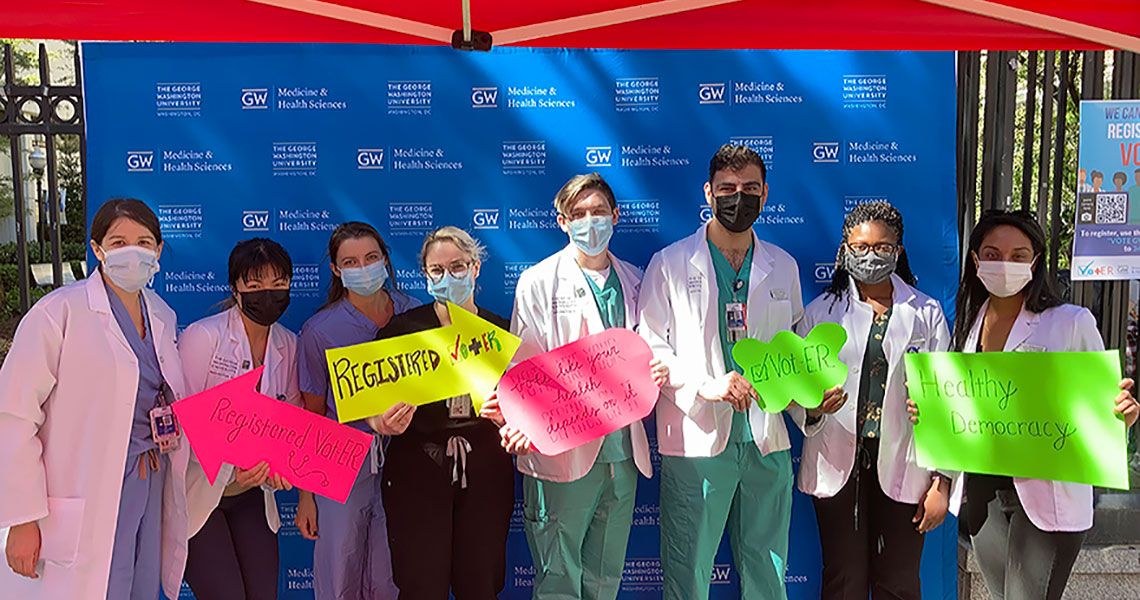Building on the success of the 2020 voter registration efforts in the GW Hospital Emergency Department, students and physicians from the George Washington University (GW) School of Medicine and Health Sciences (SMHS) hosted a “civic health check-up” on Sept. 26 at the GW Hospital in an effort to increase area residents’ voter registration numbers. They partnered with the District of Columbia Board of Elections and Vot-ER, a national nonpartisan, nonprofit organization that integrates voter registration into the health care delivery system.
The goal of the event was to foster healthy communities by creating a more inclusive democracy, according to Marisa Dowling, MD, MPP, clinical assistant professor of emergency medicine at SMHS, who led this year’s Vot-ER effort.
With area registration deadlines looming — including Oct. 11 in Virginia and Oct. 18 in Maryland — roughly 100 patients or visitors stopped by the Vot-ER tables to check their voter registration, register to vote, update registration, request a mail-in ballot, or ask questions about registration.
“Voting impacts policy,” said Dowling, explaining the value of bringing providers and patients together to promote civic engagement. “Policy shapes health — whether it’s directly through health care and public health infrastructure, or through influences on any one of the many social determinants of health, such as housing, transit, nutrition, or education.
“In the emergency room, we see the outcomes of poor health policy, especially among the young, poor, and people of color,” she added. “We want our patients to have a voice in shaping the health of their communities, as the system all too often fails them now. By putting voter registration in the ER and through these voter drives, we are expanding outreach and removing barriers to voices in our community that need to be heard.”
According to the Brennan Center for Justice, 18 states across the country have enacted 30 laws creating provisions such as strict voter ID requirements, limits to mail-in and absentee balloting, as well as limits to the number, location, or availability of mail ballot drop boxes, making registration and having a voting plan all the more important.
“Fundamentally, it’s crucial that health care providers continue to engage with their communities to ensure their patients voices are heard,” Dowling said, adding that a key component of that is maintaining an up-to-date voter registration.
“In Washington, D.C., we see a difference of 20–30% turnout in off-year elections,” she continued. “We are hoping to drive up turnout numbers for 2022, and that work takes time. This drive is a great opportunity to continue that work and maintain engagement even in an off year for D.C. elections.”
Did you miss the Vot-ER event? You can still register on the GW SMHS Vot-ER page.



